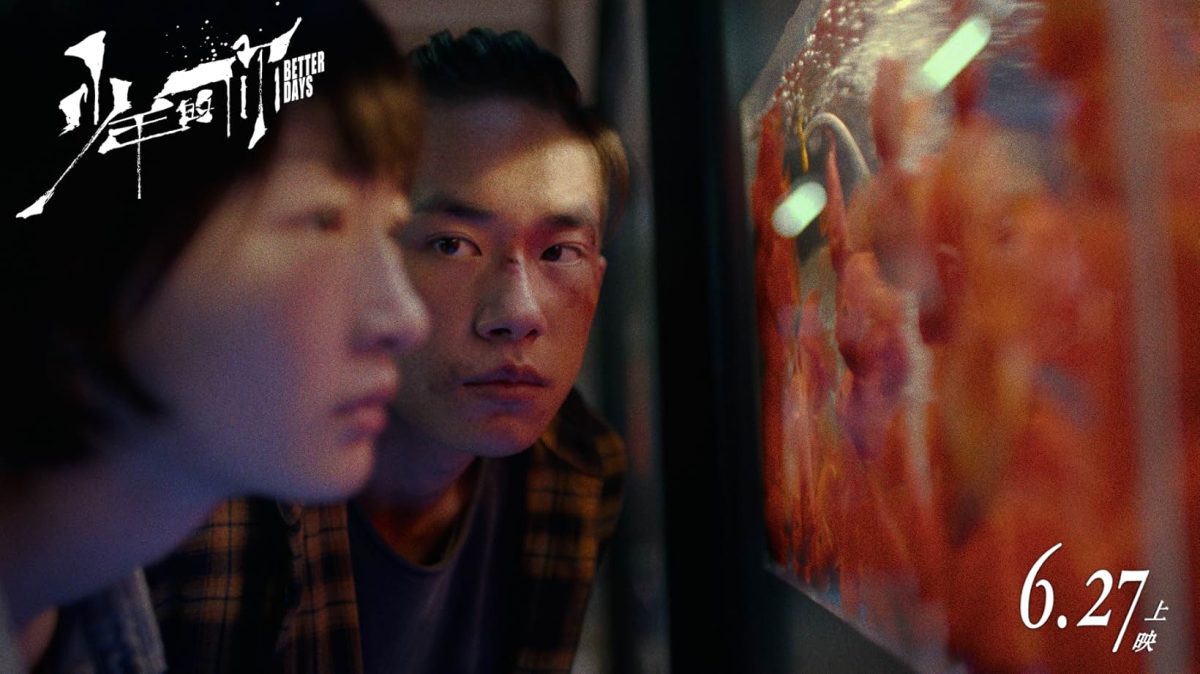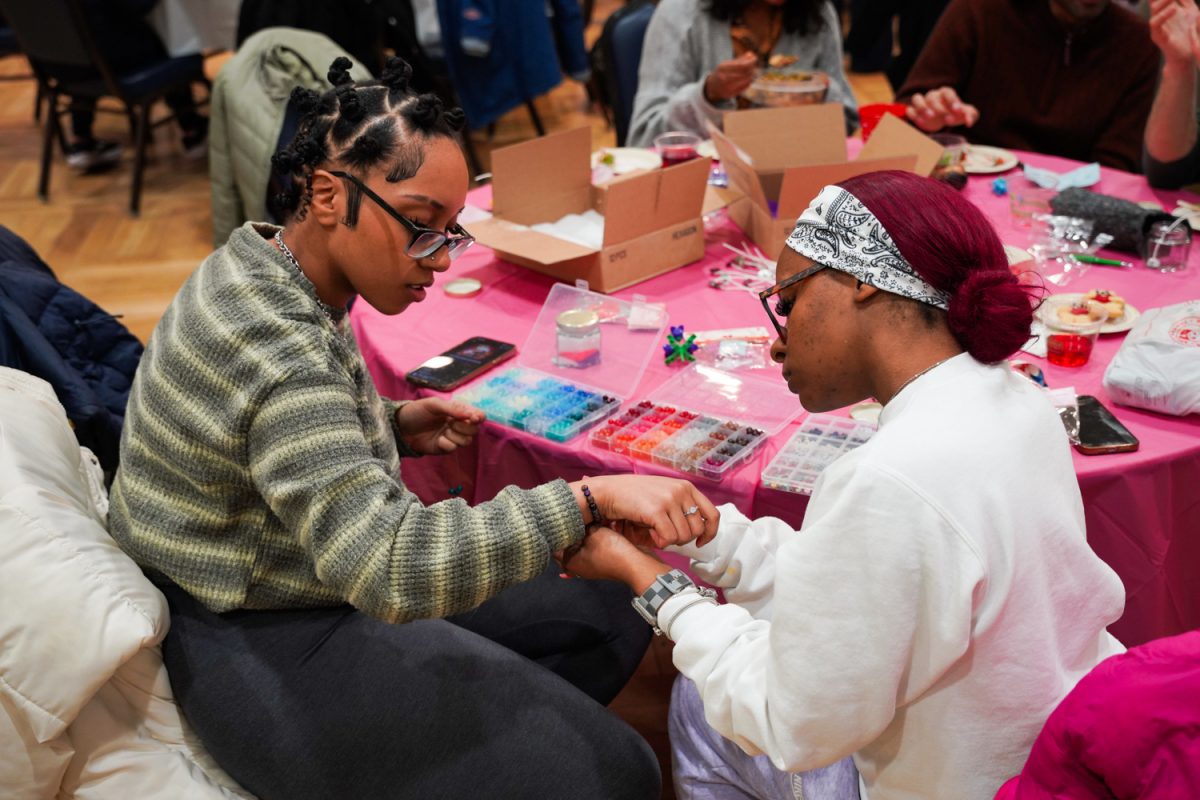**This column contains spoilers.**
**Trigger warning: This article includes descriptions of bullying, graphic violence and suicide.**
Five years after the Oscar-nominated film “Better Days” was released internationally, the movie continues to impact Chinese politics concerning anti-bullying campaigns and youth advocacy. Its relatability to Chinese students and the immense popularity of the two main leads, Dongyu Zhou and Jackson Yee, skyrocketed the anticipation of the release and led to multiple nominations and awards.
The movie follows bullying victim Nian Chen (Zhou) and teenage thug Liu Beishan, also known as Xiao Bei (Yee). After Nian’s classmate commits suicide because of the endless bullying she faced in school, they find a new target in Nian.
Get The Daily Illini in your inbox!
As she prepares for the National Higher Education Entrance Examination, also called Gaokao, Xiao agrees to escort her to and from school to thank her for helping him out of a fight. When he is unable to escort her one day, the group of bullies track down Nian and brutally assault her — they film her as they beat her, strip her, tear apart her belongings and cut her hair.
A few days after the incident, the head of the group of bullies is found dead, buried in a construction site. It wasn’t too long until Nian became a prime suspect. As the movie progresses into the day of Gaokao, watchers see flashbacks of Nian pushing the bully away after being harassed by her once more — except this time, it is the bully who falls down a few flights of stairs. She dies immediately.
Moral dilemmas and attempted cover-ups ensue between the two main characters in “Better Days,” hoping to protect one another’s future. Both ultimately end up in prison with lesser sentences due to the special circumstances.
“Better Days” is a powerful and visceral film illustrating the struggles of modern-day education in China and the impulsive nature of teenagers. The pressure, stress and overwhelming fear of failure can drive anyone mad, let alone young adults.
In the case of primary and secondary school students, there are not many outlets to release these built-up emotions, and many turn to harassment of others to relieve themselves. Although this can provide some insight into the psychology of a bully, this does not excuse their actions.
The problem extends to South Korea, where multiple TV shows have been produced in hopes of highlighting how destructive bullying has gotten in school. Shows like “The Glory,” “Revenge of Others” and “Weak Hero Class 1” have become popular worldwide for their explicit scenes and hard-to-watch moments.
What’s ironic is how some of these actors and actresses themselves were bullies when they were younger. Accusations surfaced a few weeks after the success of “The Glory,” and Kim Hieora was embroiled in a scandal that exposed her as a bystander and friend to a gang of teenagers who frequently harassed and stole money from others for alcohol, cigarettes and karaoke bars.
These shows go in-depth on expectations set upon the youth, the harsh punishments when they fail to meet such standards and the various ways students try and cope with their reality — both as a victim and as a culprit.
“Better Days” drew international attention to the inner workings of education within China. After such backlash and media publicity, the country reacted quickly by implementing harsher punishments for bullies and emphasizing that schools should be more proactive against bullying.
China has built the largest education system in the world and holds pride in the success of its students, even if it means costing them their mental well-being. The lack of acknowledgment of poor mental health in China is due to a combination of cultural factors and a stigma against psychological disorders. Admitting to needing treatment for mental health is frowned upon and is considered weak more than anything else.
Many children oftentimes find themselves left behind in rural areas as their parents leave for urban parts of the country to find work, leading them to develop the mindset of needing to be strong — not only for themselves but for their parents as well. Not acknowledging poor mental health gives the adults less to worry about, and combined with the constant pressure to be the best for the sake of the family name, many students continue to suffer silently.
According to Sage Journals, the Chinese “Compulsory Education Law stipulates nine years of government-funded compulsory school attendance, which includes six years of primary school and three years of junior high school,” highlighting just how much China values education. Despite these high literacy rates and successes on paper, the problem of bullying persists.
In 2013, the People’s Republic of China on the Protection of Minors became effective, requiring schools to implement a campus safety plan to reduce and prevent cases of bullying. Then, after seeing how school bullying went beyond campus grounds, new initiatives were established in hopes of change.
More regulations were established in 2016, 2017, 2018 and 2024 on the issue of school bullying. Recently, primary and middle schools nationwide have been asked to set up cameras in blind spots on school grounds where bullying usually occurs. This includes hallways, rooftops and storage rooms, according to the state-run China Global Television Network.
Cases that have been extensively shared throughout the media in the past year include a boy who was killed and buried in a vegetable garden by his schoolmates in the Hebei province. He had been a long-time victim of bullying, and despite the heinous act, all four convicted students between the ages of 12 and 13 were given 10 to 15-year sentences due to their minor status.
The topic went viral on Weibo, one of the biggest social media platforms in China, with about 1.2 billion views on two hashtags related to the case. Many netizens used Weibo to express their frustration against what they deemed extremely light sentences for the convicted. Had they not been minors, the death penalty would have been on the table.
A Chinese study revealed that up to 66% of students have experienced bullying, whereas 37% have been perpetrators of bullying. In the past three years, the Supreme People’s Court of China concluded 73,178 juvenile crime cases, which account for 2-2.5% of all criminal offenders between 2021 and 2023.
The crackdown on school bullying in China may be strong, but the large population combined with immense pressure to do well has hindered the welfare of children across the country.
Movies such as “Better Days” and other media sources have brought attention to the struggles of youth in China and other Asian countries, advocating for more people to take up the responsibility of caring for those most powerless.
“You’ll protect the world, I’ll protect you,” Xiao said to Nian when she initially asked for help, a sentiment that has become an echo to parents, teachers and authorities across the country to ensure the happiness and prosperity of their children.
No amount of censorship of the media can hide the dissatisfaction of netizens in China. As these harsh cases are brought to light, the critical eye from both inside the country and abroad will continue to force forward China’s obligation to improve the lives of all children during such a vulnerable time in their lives.










